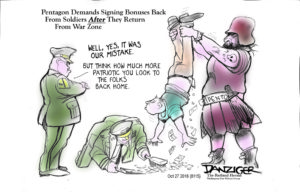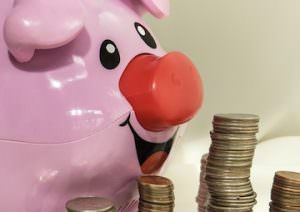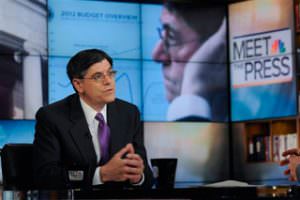A Rebound Without Recovery
The arithmetic of this recession still looks pretty dismal and the politics and psychology of it are starting to become disconnected from reality in a scary way.The politics and psychology of this recession are starting to become disconnected from reality in a scary way.
So is there good news, or bad? Are we poised for an economic rebound or are we perched on the edge of another unnerving cycle in which Wall Street analysts — along with politicians with a huge stake in talking things up — try to chat us out of our funk?
Goldman Sachs, fresh from returning the $10 billion infusion of taxpayer money that helped keep it afloat during last fall’s credit crisis, posted a record-breaking $3 billion profit in the second quarter. That’s enough to dedicate nearly half the firm’s revenues to compensation — that is, to the eye-popping salaries and obscene bonuses that we’ve been led to understand were one cause of the financial and economic meltdown. Nonetheless, Goldman’s good fortune is good news for New York limo drivers, landscapers, bartenders, nannies, real estate brokers and home-improvement contractors. Sometimes a torrent really does trickle down.
Meanwhile, Wall Street analysts are raising profit forecasts for U.S. companies at a pace not seen since April 2007, according to the Bloomberg financial news service. So things are looking up if you’re an executive who can boast of achieving those fatter profits, or even if you are a middle-class investor worried about your retirement portfolio.
But then, there’s Staples.
The office-supply chain sent me an e-mail advertisement just the other day boasting that it is offering 25-cent specials on some back-to-school supplies. Glue, pencil sharpeners, erasers, pens, pencil cases — a quarter is all it takes.
As a leading economic indicator, I’m going with Staples.
Nothing deflates irrational exuberance like retailers who are practically giving stuff away to get people into their stores. This is how things look in the real economy, the one in which unemployment is 9.5 percent — the highest in 26 years — and is expected to rise. This is the economy of pay cuts and freezes, reduced hours and workers whose employers who have stopped contributing to 401(k) retirement plans.
Those upgraded profit forecasts that are such good news for investors are based on analysts’ views that business costs have been reduced so much that profits can rise. But the “costs” that have been pared amount to far more than free coffee in the break room. The cuts have come directly from layoffs, reduced work hours, pay freezes and benefit reductions that are going to continue dragging down the economy.
That’s why the arithmetic of this recession still looks pretty dismal, and why the politics and psychology of it are starting to become disconnected from reality in a scary way. Scary because we seem ready again to declare that everything is hunky-dory — or soon will be — because certain elements of a rebound, notably those tied to investments, are becoming visible. This should really worry us.
Because during the past decade, a recovery was declared successful even as it was detached from the larger mission of building an economy based on rising productivity and, most crucially, rising incomes, across a broad swath of society. For years it was a “jobless recovery” — an upturn in overall economic activity that wasn’t based on job creation but relied heavily on more spending by those who already have jobs.
Meanwhile, we seem poised for continued income stagnation among most workers. Even when the economy starts producing jobs, it is unclear whether business will hire back the same number of workers. The slack labor market will depress incomes, as workers eager for employment will accept lower pay and stingier benefits than those they may have enjoyed in the job they lost in the downturn.
Where, after all, will even the most skilled autoworker earn comparable pay and benefits to those that were lost? Nowhere.
From 2000 to 2007, households with working-age adults made no income gains at all, according to an analysis by Lawrence Mishel of the Economic Policy Institute. It’s the first time on record that there was an economic expansion that didn’t revive incomes. This contributed mightily to the credit crisis — as incomes stagnated, more and more people turned to riskier and riskier borrowing to fill the gap between what they earned and what they wanted to buy.
It’s true there was an unacceptable cultural expectation that you can live beyond your means. But even in the era of 25-cent specials and two-for-one restaurant deals, families need a means to live. Only when we have that again can you believe anyone who says our economic nightmare is over.
Marie Cocco’s e-mail address is mariecocco(at)washpost.com.
© 2009, Washington Post Writers Group
Your support matters…Independent journalism is under threat and overshadowed by heavily funded mainstream media.
You can help level the playing field. Become a member.
Your tax-deductible contribution keeps us digging beneath the headlines to give you thought-provoking, investigative reporting and analysis that unearths what's really happening- without compromise.
Give today to support our courageous, independent journalists.






You need to be a supporter to comment.
There are currently no responses to this article.
Be the first to respond.